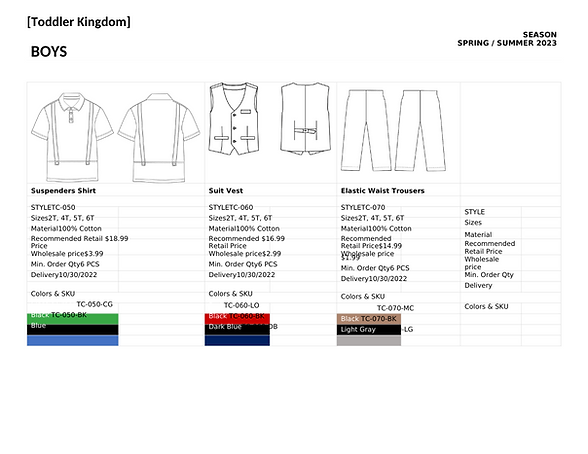PhD in Education Career Paths: Complete Guide to Professional Opportunities
Understand the value of a doctorate in education
A PhD in education represent the pinnacle of academic achievement in the field of learning and instruction. This advanced degree open doors to numerous career paths that extend far beyond traditional classroom teaching. Education doctorate holders possess specialized knowledge in research methodologies, educational theory, policy development, and organizational leadership that make them valuable assets across various sectors.
The comprehensive training involve in earn an education doctorate develop critical thinking skills, research expertise, and deep understanding of how people learn. These competencies translate into versatile career options that can impact education at local, national, and international levels.
Academic leadership and administration
One of the virtually prominent career paths for education doctorate holders involve academic leadership roles. University presidents, provosts, and deans oftentimes hold doctoral degrees in education or related fields. These positions require understanding of educational policy, institutional management, and strategic planning.
Department chairs and program directors represent another layer of academic leadership. These roles involve curriculum development, faculty management, budget oversight, and student affairs coordination. The research background gain through doctoral studies proves invaluable when make data drive decisions about program effectiveness and institutional improvements.
Academic administrators too work in student services, include roles as directors of academic support, student success coordinators, and enrollment management specialists. These positions focus on improve student outcomes through evidence base interventions and support systems.
Higher education teaching and research
University professor positions represent a traditional career path for PhD holders in education. These roles typically involve teach graduate and undergraduate courses, conduct original research, and contribute to scholarly publications. Professors oftentimes specialize in areas such as curriculum and instruction, educational psychology, special education, or educational technology.
Research positions at universities and educational institutions allow doctorate holders to focus principally on advance knowledge in their field. Research professors, postdoctoral researchers, and principal investigators lead studies that inform educational practice and policy. Many research roles involve collaboration with government agencies, nonprofit organizations, and private foundations.
Community college leadership represent another avenue for education doctorate holders. These institutions progressively seek leaders with advanced degrees who understand both academic rigor and workforce development needs.
Educational consulting and private sector opportunities
The private sector offer numerous opportunities for education doctorate holders to apply their expertise. Educational consulting firms hire PhD holders to work with schools, districts, and organizations on improvement initiatives. These consultants might specialize in areas like curriculum design, assessment development, teacher training, or organizational change management.
Corporate training and development departments value the instructional design expertise that education doctorate holders possess. These professionals create learn programs for employees, develop training materials, and evaluate program effectiveness. The shift toward remote work and digital learning has increase demand for professionals who understand adult learning principles and technology integration.
Edtech companies actively recruit education doctorate holders for product development, research, and market analysis roles. These positions combine educational expertise with business acumen to create innovative learning solutions. User experience research, content development, and product management represent specific areas where education PhDs add significant value.
Government and policy roles
Federal, state, and local government agencies employ education doctorate holders in various capacities. The department of education, national science foundation, and other federal agencies hire researchers and policy analysts who can interpret educational data and recommend evidence base solutions.
State education departments need specialists who understand both educational theory and practical implementation challenges. These roles might involve develop state standards, create assessment systems, or design professional development programs for educators.

Source: Asia can.com
Think tanks and policy research organizations employ education doctorate holders to conduct studies that inform public policy decisions. These positions involve analyze educational trends, evaluate program effectiveness, and communicate findings to policymakers and the public.
Nonprofit and foundation work
Educational foundations and nonprofit organizations offer meaningful career opportunities for doctorate holders who want to impact educational equity and access. Program officers at foundations evaluate grant proposals, monitor fund projects, and identify emerge needs in education.
Nonprofit organizations focus on education reform, literacy, stem education, or other specialized areas hire PhD holders to lead programs, conduct research, and advocate for policy changes. These roles oftentimes involve community engagement, partnership development, and fundraising activities.
International development organizations value education doctorate holders for their understanding of learn systems and cultural contexts. These positions might involve design educational programs for develop countries, evaluate international education initiatives, or conduct cross-cultural research.
Specialized education sectors
Healthcare education represent a growth field for education doctorate holders. Medical schools, nursing programs, and other health professions education programs need leaders who understand both clinical practice and educational best practices. These roles might involve curriculum development, assessment design, or faculty development.
Military education and training organizations employ education specialists to design and evaluate training programs. These positions require understanding of adult learning principles, performance improvement, and organizational development.
Museum education, corporate universities, and professional development organizations offer additional opportunities for education doctorate holders to apply their expertise in non-traditional settings.
Entrepreneurial opportunities
Many education doctorate holders choose to start their own consulting practices or educational ventures. The deep knowledge of learn systems and research methodologies provide a strong foundation for entrepreneurial activities. These might include develop educational products, create online learning platforms, or establish specialized training programs.
Writing and publishing represent another entrepreneurial path. Education doctorate holders frequently author textbooks, create educational resources, or develop assessment tools. The research and writing skills develop during doctoral studies translate wellspring into these ventures.

Source: envocabulary.com
Salary expectations and career progression
Compensation for education doctorate holders vary importantly base on sector, location, and specific role. University professors typically start with salaries range from $50,000 to $$80000, with potential for significant increases through tenure and promotion. Administrative roles oft offer higher starting salaries but may require additional experience.
Private sector positions oftentimes offer competitive compensation packages, with consulting roles and corporate positions oftentimes exceed academic salaries. Government positions provide stability and benefits, though salaries may be more modest than private sector alternatives.
Career progression oftentimes involve movement between sectors or advancement within choose fields. Many successful education leaders combine experience from multiple sectors, bring diverse perspectives to their roles.
Skills and competencies develop
The doctoral journey develop numerous transferable skills that enhance career prospects. Research methodology expertise enable graduates to design studies, analyze data, and draw evidence base conclusions. These skills prove valuable across sectors where data drive decision-making is essential.
Communication skills develop through dissertation writing, conference presentations, and teach experience translate into numerous career contexts. The ability to explain complex concepts intelligibly and persuasively serve professionals intimately in consulting, policy, and leadership roles.
Project management skills gain through dissertation completion and research projects prepare graduates for roles require coordination of complex initiatives. Time management, resource allocation, and stakeholder communication become second nature through doctoral training.
Prepare for career success
Maximize career opportunities require strategic planning throughout the doctoral program. Build professional networks through conferences, professional organizations, and collaborative research projects create valuable connections. Many career opportunities arise through professional relationships instead than traditional job applications.
Develop expertise in emerge areas like educational technology, data analytics, or international education can differentiate candidates in competitive job markets. Stay current with trends and innovations demonstrate commitment to professional growth.
Gain diverse experience through internships, consult projects, or collaborative research broaden career options. Many successful professionals combine academic credentials with practical experience in multiple sectors.
Future outlook and emerge opportunities
The education sector continue to evolve, create new opportunities for doctorate holders. Digital transformation in education has increase demand for professionals who understand both technology and learn principles. Artificial intelligence, virtual reality, and adaptive learning systems require expertise that educatiPhDshds can provide.
Grow emphasis on evidence base practice across sectors increase demand for professionals who can conduct rigorous research and translate findings into practical applications. This trend benefit education doctorate holders who possess both theoretical knowledge and research skills.
Globalization of education create opportunities for professionals who understand diverse learning context and can work across cultural boundaries. International consulting, cross-cultural research, and global education initiatives represent grow career areas.
The diverse career paths available to education doctorate holders reflect the broad applicability of advanced knowledge in learning, research, and organizational development. Whether pursue traditional academic careers or explore innovative applications of educational expertise, PhD holders in education possess valuable skills that translate across numerous sectors and contexts.



